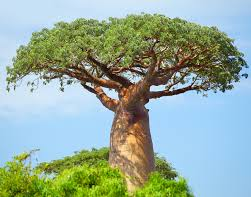Securing the History of Self: What of Falsified History?
- By kwende ukaidi
- •
- 12 Oct, 2024
- •
Celebrating the Great Afrikan History Continuum

Afrikan history naturally holds the reality of self-determined
Afrikan experiences throughout the ages. With an immense body of pioneering
achievement and excellence beyond compare, this soul people have a vast repository
of empowering reference in their historical truism. However, in a state of interruption
and disruption where others that mean the Afrikan ill may seek to thwart,
distort and even hijack Afrikan historical experience, truism can suffer
acutely. Here, the motives for the
falsification of history may become prominent and pseudo-history may become
popularised.
According to the contemporary mainstream source, the term falsification of history holds the following meaning:
“Falsification of history, distortion of the historical record also known as Historical revisionism. Forgery, the act of producing something that lacks authenticity with the intent to commit fraud or deception. Self-falsification”.
If Afrikan souls are then subject to a diet of falsified history – via whatever means, including formal systems of miseducation – then the results to Afrikan life norms can be devastating. In a sense, Afrikan history can be a direct reflection of the Afrikan life lived. Thus, wholesome, upright and truthful history reflects wholesome, upright and truthful living and life. By converse, if the history made available to this soul people is forged, fraudulent and void of authenticity, then life and living exists in an unauthentic way at best encouraging negatives of unnatural substance in relation this primary people’s norm.
Further, when one considers that the Afrikan history continuum reflects the self-determined experience made in the past, is being made in the present and is going to be made in the future – the destructive ramifications of falsified history can become amplified what would otherwise be the progressive consciousness of Afrikan souls.
In fraudulent history telling, as an example, Afrikan souls may not have any civilisation to speak of. They may be portrayed as being souls that exist solely for the purpose of serving others void of any interest in themselves and their own development, prosperity and security. Such notions could not be further from the truth. Yet, if pushed and peddled by others that mean the Afrikan ill, the susceptible soul may consume such a dire fallacy for it to become a reality in their lives.
Afrikan souls naturally have such a tremendous wealth of illustrious self-determined experience, there is surely no reason for them to fabricate their historical journeying in the world. Unless working by proxy of others that mean the Afrikan ill. Certainly, periods of interruption and disruption to their history can be painful – even horror-filled – episodes and ought to be handled accordingly with due care. However, the totality of the Afrikan experience is so vast that when disruptive periods are placed in their appropriate context of time, temporary and relatively short frames of existence, the Afrikan can learn appropriate lessons and bolster the onward thrust of their continual ascension. After all, civilisation is not of happenstance.
Afrikan Historia Msimu is an observance period for the duration of the tenth month of the year (so-called October). This is a special time for learning, growth and development of the Afrikan experience in the world. It is a time of spiritual and cultural elevation as Afrikan history is restored to fabric of life in the living knowingness of the then, the now and tomorrow. Great ones of the Afrikan journey are highlighted and the symbols relevant to the time invigorate life in the imperative onward flow of global Afrikan ascendancy. This wonderful observance is a part of the cultural calendar of the Universal Royal Afrikan Nation (URAN).
The Universal Royal Afrikan Nation (URAN) is an Afrikan-centred spiritual and cultural mission for ascendancy that embodies living spiritually and culturally rooted life. To find out more about URAN and its spiritual-cultural mission for liberty and nationhood click here. The exquisite URAN pendant can be obtained online by clicking here.
In his capacity as an Afrikan-centred spiritual cultural practitioner this author is available for further learning in this regard and also for the carrying out of ceremonies such as naming and name reclamation. For details please click here.
Afrikan World Studies programmes are important forms of study in understanding the Afrikan experience. There are a range of subjects covered on these programmes including History, Creative Production, Psychology and Religion. To find out more about these learning programmes please click here. For the video promo for these learning programmes click here.
At nominal cost, also consider acquisition of an a4 laminate poster of articulations by this author when visiting the Yemanja-O establishment to enrol, consult, learn, gather or otherwise.
Also, visit www.u-ran.org for links to Afrikan liberation Love radio programme on Universal Royal Afrikan Radio online.
